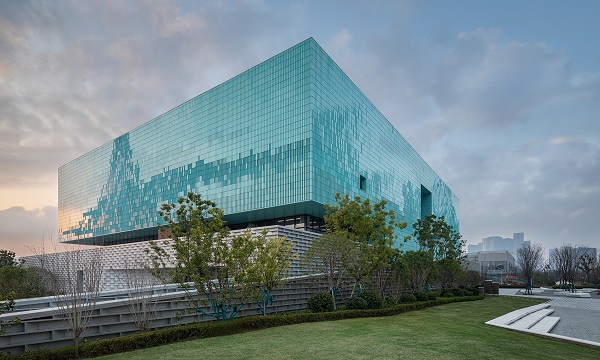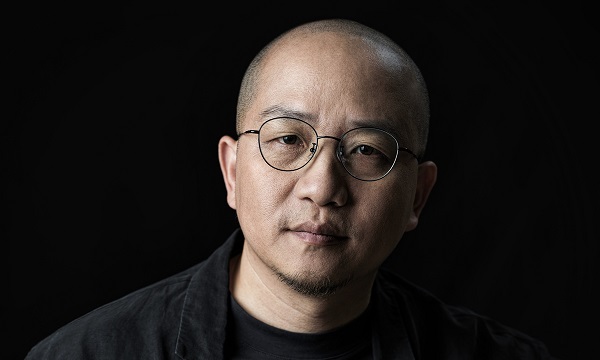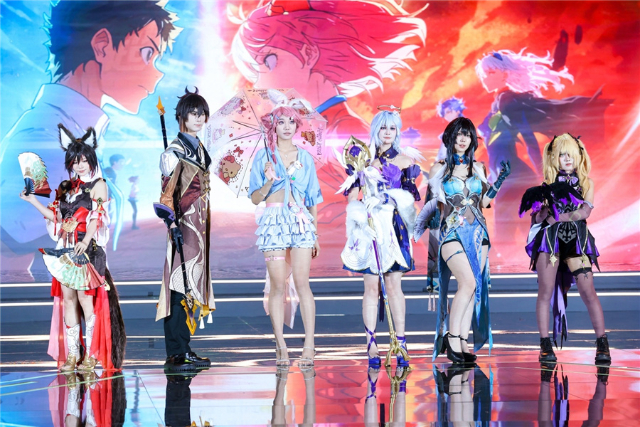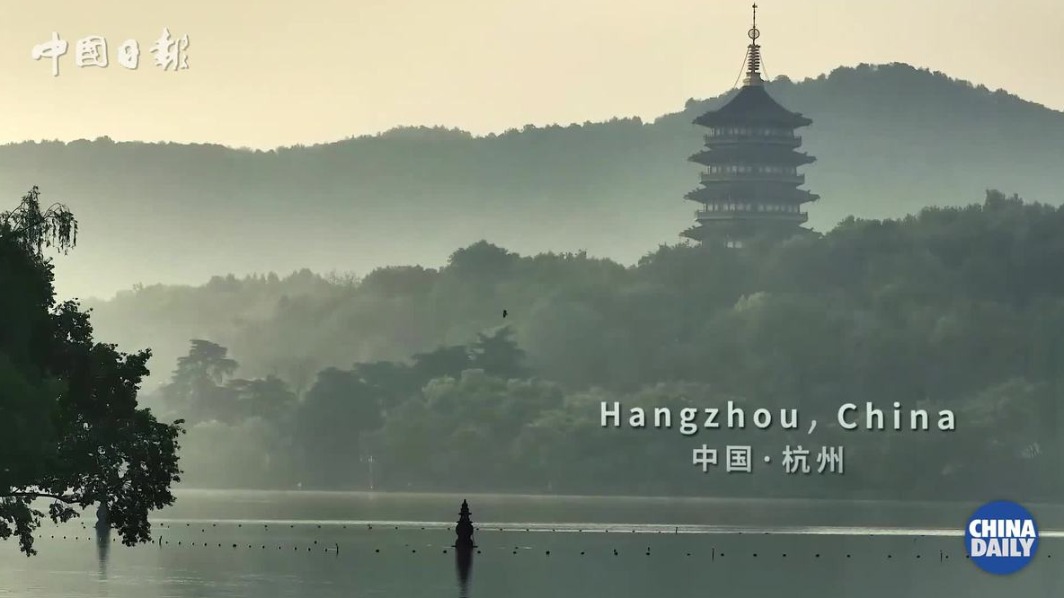Designers incorporate Chinese painting masterpiece into architectural works in Hangzhou Asian Games Village

The Asian Games Village International Zone Photo: Courtesy of DC Alliance

Dong Yi, chief architect of c+d Design Center Photo: Courtesy of schranimage
Building a core architectural complex to host tens of thousands of people during the upcoming 19th Hangzhou Asian Games in East China's Zhejiang Province is not an easy job, and incorporating the essence of a city of hundreds of years old, which was once the ancient capital city of Southern Song Dynasty (1127-1279), can be more challenging.
The designer behind this monumental project, Dong Yi, has drawn inspiration from one of China's greatest paintings: Huang Gongwang's Dwelling in the Fuchun Mountains.
This 690-centimeter-long masterpiece, dating back to the 14th century, captures the stunning scenery of the Fuchun River and its surroundings in early autumn, from peaks and ridges, to the pines and rocks set against the backdrop of clouds and mountains.
Dong Yi, an associate professor at the College of Architecture and Urban Planning at Tongji University, and his team from c+d Design Center used the painting as a blueprint for their 600-meter-long complex, which will blend harmoniously with the city's landscape and urban environment.
"The painting depicts one of the most representative scenic spots in Zhejiang, and such a long scroll can be well projected onto the wall of our complex, which is reminiscent of mountains and waters in the city," Dong told the Global Times in a recent exclusive interview.
But there is more to this story than meeting the eye.
A touch of classics
The Hangzhou Asian Games scheduled to start on September 2023 will be a grand event that will attract nearly 30,000 people, including 10,000 athletes and officials, 4,000 technical staff, and 5,000 reporters, according to official data from the Games.
Among them, the Asian Games Village International Zone, designed by Dong Yi and his team, a core architectural complexwill stand out as a remarkable fusion of tradition and modernity, inspired by one of China's greatest paintings.
It covers an area of 1.13 square kilometers with a floor area of 2.41 million square meters.
It will serve as a significant public activity area during the competitions, with functional areas such as an administration center, a culture center, a gym, and a sports center for the Village's community.
The team's exceptional design concept helped the team win the bid in 2018, but they still faced a challenge: how to give the traditional ink painting a modern twist. They experimented with different methods of abstractly projecting the mountains and waterways onto the exterior wall, until they found the perfect solution.
"We wanted to create a mountain and water ink painting on our building, but we also wanted it to have a special texture and meaning," Dong said.
At first the team chose celadon as the main material for the wall, a symbol of Hangzhou's history as a major producer of porcelain. But in order to achieve a more gentle texture that resembles jade, another symbol of the local Neolithic Liangzhu Culture, the team finally settled on cyan-green pottery sticks as the main building material after a series of attempts.
The pottery sticks create a stunning visual effect that mimics the brushstrokes of the ink painting, while also conveying the cultural heritage and natural beauty of Hangzhou.
The team also used technology to support their design. "We used four-unit modules to contrast different colors, and by employing rotated angles the subtle shadow differences created outline the same landscape as the Dwelling in the Fuchun Mountains," Dong explained.
The team also drew inspiration from another painting, the Imperial City of Southern Song Dynasty by modern ink painting master Chen Minglou. They used white metal bricks to simulate the traditional brick construction method, and piled them into the shape of the ancient walls.
The team faced a technical challenge when they had to incorporate a transformer substation an electrical installation - into the complex that spans 67,000 square meters. This was the first time such a feat has been achieved in Hangzhou.
The design is another example of the remarkable fusion of tradition and modernity, inspired by one of China's greatest paintings.
A functional zone for all
The complex consists of four individual buildings that are connected by two-story corridors, and features three basketball courts and one seven-player soccer pitch.
The complex is 600 meters long from south to north, posing a challenge for the designers to create the appearance of a? cohesive whole.
They solved this problem by using an interwoven "blue-sky" track connecting the four buildings, creating a dynamic and fun experience for visitors.
"While running on the track, one will run into and out of a huge mountain and water painting," Dong said, expressing the team's vision of conveying their best wishes for Hangzhou on such an important occasion.
The complex will provide medical and commercial services for the participating national teams and the Olympic Committee during the Games, and will then be transformed into a community center for the city's residents after the Games.
The Games will be a grand event that will see 12,527 athletes from 45 countries and regions competing in 40 sports, from September 23 to October 8.
All 54 Asian Games venues are ready for the competition and the Asian Games Village and Sub-villages are ready for to accommodate participants. The Main Media Center will begin operations on September 18.
-
'Nice' to meet you, Hangzhou
May 6, 2024



